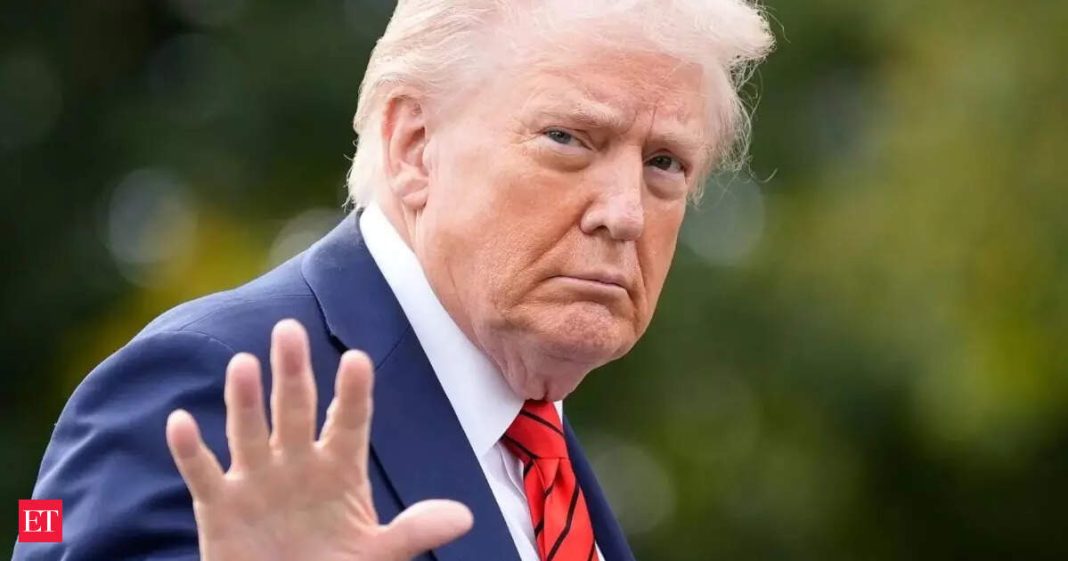Key Takeaways
- The Supreme Court will hear arguments on Trump’s tariffs, testing if the conservative majority applies the same “major questions doctrine” used against Biden.
- Business challengers argue Trump’s use of emergency powers for tariffs exceeds congressional authorization.
- The case centers on whether presidential emergency powers extend to imposing tariffs under the 1977 International Emergency Economic Powers Act.
The US Supreme Court faces a pivotal test: will its conservative majority apply the same strict legal standards to Donald Trump’s tariffs that it used to limit Joe Biden’s major initiatives? This question lies at the heart of Wednesday’s arguments challenging Trump’s use of emergency powers to impose far-reaching tariffs.
Businesses and states suing over the tariffs are directly appealing to the three Trump-appointed justices, hoping to attract their votes against a centerpiece of Trump’s economic agenda. The case represents a crucial examination of presidential power.
The Legal Battle Over Emergency Powers
Trump invoked the International Emergency Economic Powers Act (IEEPA) to justify two sets of tariffs, claiming trade deficits and fentanyl imports created “economic and national-security crises.” Notably, no president had used this 1977 law to impose tariffs until Trump’s administration.
The administration argues the law’s authorization to regulate imports of “any property” involving foreign interests supports the tariffs, despite the statute never mentioning tariffs, taxes, or duties specifically.
The Major Questions Doctrine
During Biden’s presidency, the court’s conservative majority repeatedly applied the “major questions doctrine,” requiring clear congressional authorization for significant executive actions. The court used this principle to block Biden’s eviction pause, vaccine mandate for large businesses, and $500 billion student loan forgiveness program.
The Federal Circuit Court of Appeals easily applied these precedents to the tariffs case, noting the tariffs’ economic impact “is predicted to be many magnitudes greater” than programs the Supreme Court previously blocked.
Challengers are vigorously defending this reasoning. “Absent vigilance under the major questions doctrine, legislation would risk becoming nothing more than the will of the current President,” wrote lawyers for Learning Resources Inc., quoting Justice Neil Gorsuch.
Another business group cited Justice Amy Coney Barrett’s student loan opinion, arguing Trump “asserts highly consequential power … beyond what Congress could reasonably be understood to have granted.”
The Administration’s Counterargument
The Trump administration contends the major questions doctrine doesn’t apply to tariffs, citing Judge Richard Taranto’s dissenting appellate opinion and Justice Brett Kavanaugh’s writings.
Taranto argued presidents have wide latitude in foreign affairs and national security, writing that limiting emergency powers “would be especially out of place in an emergency statute like IEEPA.” He concluded Congress made “an eyes-open” choice to grant broad presidential authority.
Kavanaugh has expressed similar views, noting the major questions doctrine has never been invoked in foreign policy or national security cases. “The usual understanding is that Congress intends to give the President substantial authority and flexibility to protect America and the American people,” he wrote.
Taranto’s opinion referenced a 1981 Supreme Court decision upholding President Jimmy Carter’s use of emergency powers during the Iranian hostage crisis. That opinion was written by Justice William Rehnquist, with then-clerk John Roberts, now Chief Justice, serving during that term.




